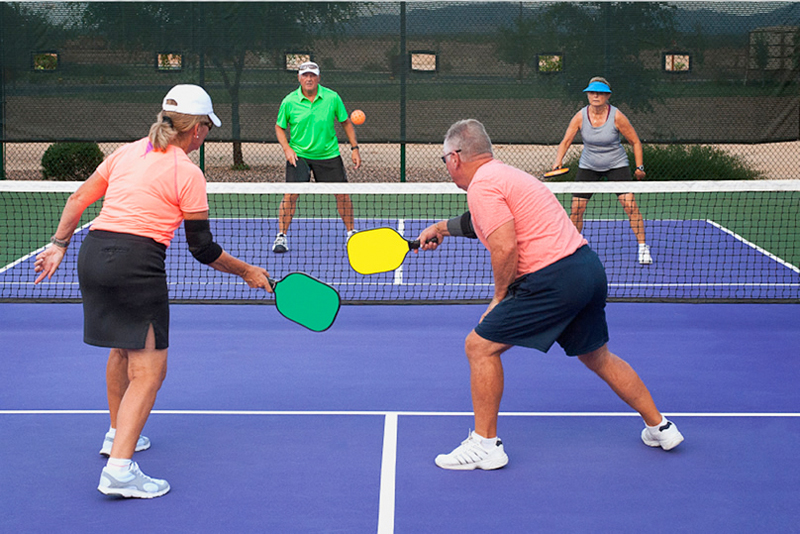BLOG
A recent report by Channel 7 News (WSVN-Fox) in South Florida shined a spotlight on a new trend that is beginning to cause noise disruptions at some of the area’s condominium communities. It is called pickleball, and the sport is becoming especially popular for 55-and-older retirement communities. While the decision of the association’s board to accommodate the sport seems innocent, it appears to have triggered some unintended consequences that other community associations should bear in mind.
First created in 1965, pickleball is a paddle sport for all ages and skill levels that combines many elements of tennis, badminton and ping-pong. It is played both as singles and doubles on a badminton-size court using a slightly modified tennis net, paddles and a plastic ball with holes.
 The station’s report, which states that the sport is becoming very popular, chronicles the issues that are arising from the noise that pickleball is creating at the Wynmoor in Coconut Creek retirement community in Broward County. Two of the community’s tennis courts were converted into eight pickleball courts, which allow for up to 32 people to play at the same time.
The station’s report, which states that the sport is becoming very popular, chronicles the issues that are arising from the noise that pickleball is creating at the Wynmoor in Coconut Creek retirement community in Broward County. Two of the community’s tennis courts were converted into eight pickleball courts, which allow for up to 32 people to play at the same time.
Linda Waldman, the owner of a unit near the courts, states: “It’s a very noisy game, unfortunately . . . there is a ‘pong’ not also from the racket, but also when it hits the ground. Ponging and screaming. It’s a very enthusiastic game. The people love it.”
She and her husband say that they hear the noise from their condo starting daily at 8 a.m., and those who use the pool also complain about the noise as a type of “Chinese water torture.”
“You cannot relax by the pool. You can sit by the pool, but you can’t relax,” Waldman notes.
“They want lights to open it up at night as well. It would really be a horrible thing for us,” she concludes. “I can’t live with this constant ‘pong, pong, pong’ every morning. Do I have the right to live here in a quiet environment?”
The answer is a court could very well find that indeed she does. Rulings on the laws governing nuisances have generally found that residents should not have to deal with unreasonably loud noises all day long. If it is determined that the activity results in a nuisance to neighboring unit owners or residents, then the association could be required to take remedial actions, such as moving the pickleball courts or establishing restrictions on the activity.
Additionally, associations should be mindful of converting existing facilities to accommodate new uses or trends. Governing documents for many community associations contain restrictions that may prevent the alteration of facilities to other uses; and other governing documents might impose conditions such as requirements for votes of the unit owners to approve alterations. Failure to comply with the contractual requirements of governing documents, such as making unapproved alterations or allowing activities that create a nuisance to other members of the community, may expose associations to liability.
In addition to the potential for such liability, a reputation for disruptive noises going on all day long within a community may also take a toll on property values over time. As such, taking careful steps to review an association’s governing documents and evaluate possible impacts of a new amenity or activity may protect it from liability and aggravation that might arise from otherwise unintended circumstances.
Fortunately, the above-referenced report concluded that Waldman might be able to avoid resorting to litigation because the 5,260-unit Wynmoor community has a reputation for resolving issues that create disruptions for their residents. In the story, association president Jackie Railey told Channel 7 she wants to find a solution and indicated that they are forming a committee to come up options to cut down the noise or move the pickleball courts.
Other community associations considering the addition of pickleball or other activities as new amenities for residents should heed the lessons learned from Wynmoor’s example and evaluate all requirements and possible consequences to all members of the community prior to offering the activity to the residents.
Click here to watch the report in the station’s website.

